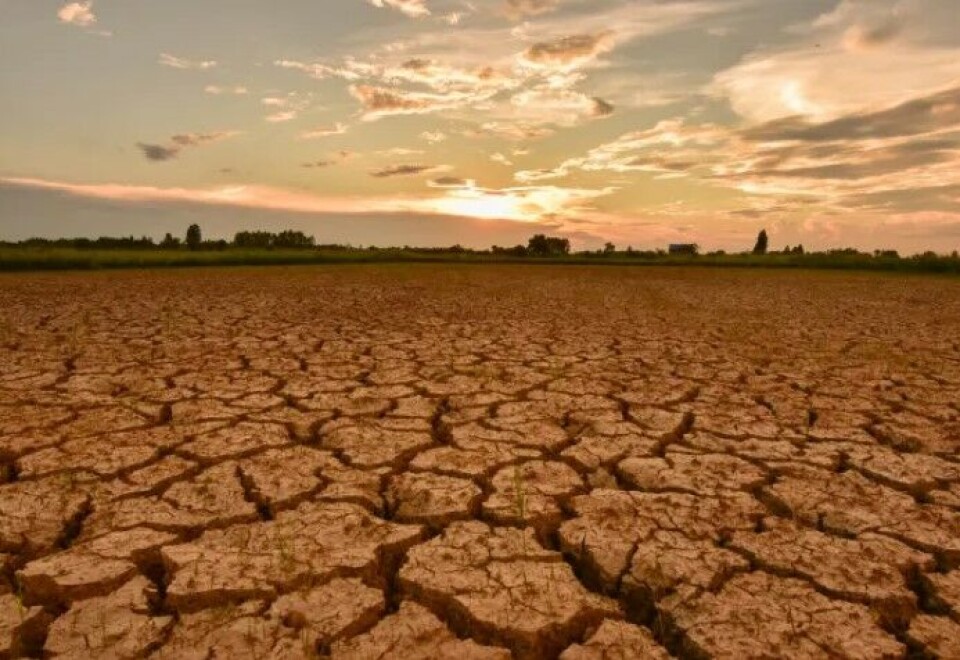-
Trump calls for Marine Le Pen to be freed (but she is not in prison)
US president said her embezzlement court case was a ‘witch hunt’
-
France’s €3 book delivery fee challenged in EU court by Amazon
Online retailer said measure is protectionist and ‘in breach of EU laws’
-
Allergies: How to know pollen levels in your commune of France
Interactive online maps can track and predict how pollen is changing in the air
How bad is the drought in France? See restrictions in your department
See the breakdown of the departments under drought warnings, alerts and crisis-level alerts

The French government has a system of alert levels to protect against the effects of drought, with various restrictions being introduced depending on the severity.
In this article we show the overall alert levels at departmental level, more localised maps to show possible alert levels in communes and also break down what each alert level means and what restrictions are in place.
What is new?
As of Monday (July 10), this is what has changed recently:
- Majority of communes in Eure-et-Loire and Calvados downgraded to no restrictions
- Majority of communes in Nord, Haute-Vienne, Mayenne and Ardèche put on lowest level, warning (code 1)
- Majority of communes in Jura, Côte-d'Or, Ain, Rhône and Vendée put on second level, alert (code 2)
- Majority of communes in Meurthe-et-Moselle put of third level, heightened alert (code 3)
General departmental alert map
The first map below shows the predominant alert level in each department, ranging from zero restrictions to code 4, or crisis level. The other maps show the alerts in place with a new map for each alert level. These maps are accurate as of July 10 and are updated every Monday.
You can click the search icon at the top left of the map and type your department name to highlight it.
Key:
- No code - No restrictions
- Code: 1 - warning (vigilance)
- Code: 2 - alert (alerte)
- Code: 3 - heightened alert (alerte renforcée)
- Code: 4 - crisis (crise)
Code 4: crisis
- Water use is only permitted for necessary means, including for drinking, health, civil security, cleaning
- Ban on watering gardens, green spaces or golf courses. There are exceptions for trees, bushes and vegetable gardens within certain hours (banned between 11.00 to 18.00)
- No watering of sports grounds during the day unless for national / international event
- Ban on washing cars
- Ban on filling swimming pools
- Ban on water usage for most agricultural practices
- Roofs, pavements, facades - Banned except if done by a professional cleaning company
The map below reflects the departments where code 4 alerts are in place in at least one of the communes.
- Aude
- Côte-d'Or
- Dordogne
- Indre
- Indre-et-Loire
- Loire-Atlantique
- Loiret
- Oise
- Pyrénées-Orientales
- Sarthe
- Vendée
Code 3: heightened alert
- Stricter limits on watering gardens, green spaces or golf courses. There are exceptions for trees, bushes and vegetable gardens within certain hours (banned between 11.00 to 18.00)
- Stricter limits are placed on washing cars and in some cases this is banned completely
- Water usage for agricultural means is limited further (banned between 09.00 to 20.00)
- No filling of public pools
- Roofs, pavements, facades - Banned except if done by a professional cleaning company
The map below reflects the departments where code 3 alerts are in place in at least one of the communes.
- Alpes-Maritimes
- Aude
- Aveyron
- Bouches-du-Rhône
- Charente
- Deux-Sèvres
- Dordogne
- Drôme
- Eure
- Haute-Marne
- Haute-Garonne
- Hérault
- Indre
- Indre-et-Loire
- Loire-Atlantique
- Loir-et-Cher
- Loiret
- Lot-et-Garonne
- Maine-et-Loire
- Meure
- Meurthe-et-Moselle
- Nièvre
- Oise
- Pyrénées-Orientales
- Saône-et-Loire
- Sarthe
- Seine-et-Marne
- Var
- Vienne
- Yonne
- Yvelines
Code 2: alert level
- Bans could be introduced on watering gardens, green spaces or golf courses within certain hours
- Bans may be introduced on washing cars within certain hours
- Limits could be imposed on the amount of water used to fill swimming pools
- Water usage for agricultural means is limited (banned between 11.00 to 18.00)
- Measures are put in place to ban the opening of sluice gates
- Roofs, pavements, facades - Banned except if done by a professional cleaning company
The map below reflects the departments where code 2 alerts are in place in at least one of the communes.
- Ain
- Aisne
- Alpes-Maritimes
- Ardèche
- Ariège
- Aube
- Aveyron
- Bas-Rhin
- Charente
- Cher
- Côte-d'Or
- Creuse
- Daubs
- Dordogne
- Deux-Sèvres
- Essonne
- Eure
- Gard
- Gironde
- Haute-Marne
- Haute-Saône
- Hautes-Savoie
- Hérault
- Indre
- Indre-et-Loire
- Loir-et-Cher
- Loiret
- Lot-et-Garonne
- Maine-et-Loire
- Mayenne
- Meuse
- Meurthe-et-Moselle
- Moselle
- Nièvre
- Nord
- Oise
- Orne
- Pyrénées-Atlantiques
- Pyrénées-Orientales
- Rhône
- Saône-et-Loire
- Sarthe
- Seine-et-Marne
- Somme
- Territoire de Belfort
- Var
- Vaucluse
- Vendée
- Vosges
- Yonne
- Yvelines
- Val-d'Oise
Code 1: warning level
This is the lowest alert level.
- People and businesses are encouraged to reduce their water usage, but it is not obligatory.
- Information on reducing water usage and managing drought should be shared by local and departmental authorities – you may receive flyers in the mail outlining this.
- Roofs, pavements, facades - Banned except if done by a professional cleaning company
The map below reflects the departments where code 1 alerts are in place in at least one of the communes.
- Ain
- Aisne
- Allier
- Ardèche
- Ardennes
- Ariège
- Aube
- Aude
- Aveyron
- Bas-Rhin
- Bouches-du-Rhône
- Charente
- Charente-Maritime
- Cher
- Côte-d'Or
- Creuse
- Deux-Sèvres
- Dordogne
- Drôme
- Essonne
- Eure
- Gard
- Gers
- Haute-Garonne
- Haute-Marne
- Haute-Vienne
- Hautes-Alpes
- Hautes-Pyrénées
- Hérault
- Ille-de-Vilaine
- Indre
- Indre-et-Loire
- Isère
- Jura
- Loir-et-Cher
- Loire
- Loire-Atlantique
- Loiret
- Lot-et-Garonne
- Lozère
- Marne
- Marne-et-Loire
- Mayenne
- Meuse
- Nièvre
- Nord
- Oise
- Orne
- Pas-de-Calais
- Pyrénées-Orientales
- Rhône
- Saône-et-Loire
- Sarthe
- Savoie
- Seine-et-Marne
- Seine-Maritime
- Somme
- Tarn
- Val-d'Oise
- Var
- Vaucluse
- Vendée
- Vosges
- Yonne
- Yvelines
Related articles
France’s official average temperature rises by 0.4C after review
























